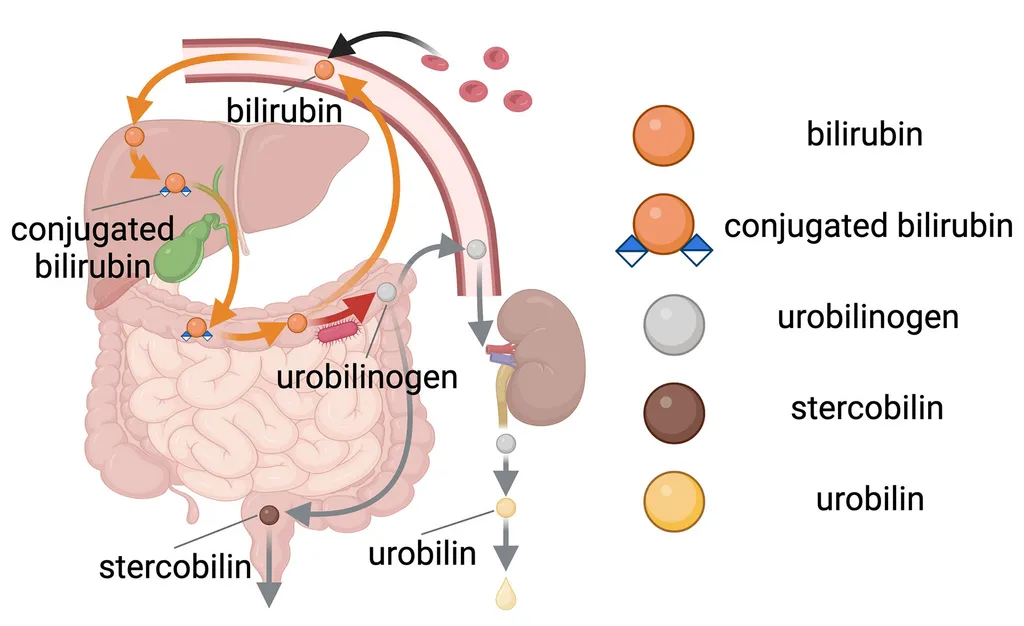- January 03, 2024
- By Emily C. Nunez
Researchers at the University of Maryland and National Institutes of Health have identified the enzyme responsible for giving urine a yellow hue, and it’s more than a matter of idle curiosity or grade-school giggles.
The microbial enzyme known as bilirubin reductase was introduced in a study published Wednesday in the journal Nature Microbiology, paving the way for further research into the gut microbiome’s role in ailments like jaundice and inflammatory bowel disease.
“It’s remarkable that an everyday biological phenomenon went unexplained for so long, and our team is excited to be able to explain it,” said lead author Brantley Hall, an assistant professor in UMD’s Department of Cell Biology and Molecular Genetics.

When red blood cells degrade after their six-month lifespan, a bright orange pigment called bilirubin is produced as a byproduct. Bilirubin is typically secreted into the gut, where it is destined for excretion but can also be partially reabsorbed. Excess reabsorption can lead to a buildup of bilirubin in the blood and can cause jaundice—a condition that leads to the yellowing of the skin and eyes. Once in the gut, the resident microorganisms can convert bilirubin into other molecules.
“Gut microbes encode the enzyme bilirubin reductase that converts bilirubin into a colorless byproduct called urobilinogen,” said Hall, who has a joint appointment in the University of Maryland Institute for Advanced Computer Studies. “Urobilinogen then spontaneously degrades into a molecule called urobilin, which is responsible for the yellow color we are all familiar with.”
Urobilin has long been linked to urine’s yellow hue, but the research team’s discovery of the enzyme that urobilin can be traced to answers a question that has eluded scientists for over a century.
Aside from solving a scientific mystery, these findings could have important health implications. The research team found that bilirubin reductase is present in almost all healthy adults but is often missing from newborns and individuals with inflammatory bowel disease. They hypothesize that the absence of bilirubin reductase may contribute to infant jaundice and the formation of pigmented gallstones.
“Now that we’ve identified this enzyme, we can start investigating how the bacteria in our gut impact circulating bilirubin levels and related health conditions like jaundice,” said study co-author and NIH Investigator Xiaofang Jiang. “This discovery lays the foundation for understanding the gut-liver axis.”
In addition to jaundice and inflammatory bowel disease, the gut microbiome has been linked to various diseases and conditions, from allergies to arthritis to psoriasis. This latest discovery brings researchers closer to achieving a holistic understanding of the gut microbiome’s role in human health.
Brantley Hall and Sophia Levy contributed to this article.
